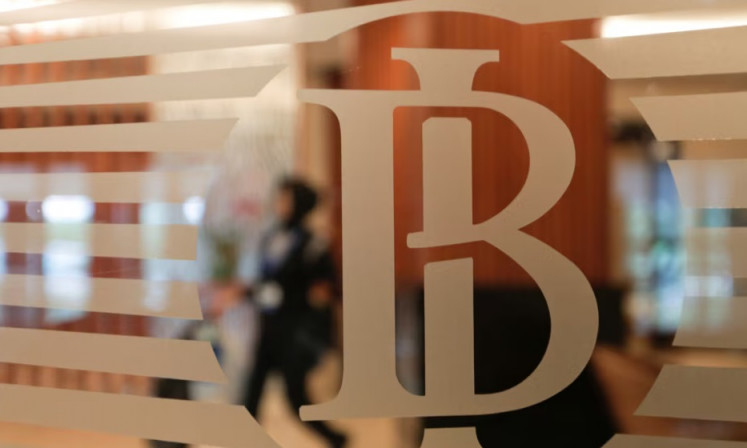Popular Reads
Top Results
Can't find what you're looking for?
View all search resultsPopular Reads
Top Results
Can't find what you're looking for?
View all search resultsReaffirming oligarchy in digital realm
The new communications and information minister, Johnny G
Change text size
Gift Premium Articles
to Anyone
T
he new communications and information minister, Johnny G. Plate, has said that the government may restrict social media access in states of emergency and has cautioned netizens against circulating sensitive content. While acknowledging that this may violate freedom of speech, he said the government had no choice to limit the impact of materials that could harm the public.
Public safety must be prioritized. However, what worries human rights activists is the unclear definition of emergency and public interest, which could further justify the state’s control of information to maintain power. As in the old days, criticism of state policies and officials may be considered sensitive. Instead of responding to this criticism with introspection and improvement, the government may simply restrict internet access.
The government has already limited access to digital spaces at least twice this year. The first was a social media restriction during protests against the results of the presidential election in May. The second was an internet restriction in Papua following protests against racism in August and riots in several cities in Papua and elsewhere. Instead of reducing hoaxes, as the claimed intention, both restrictions actually led to confusion and suspicion of the government.
This tendency to limit freedom shows the true nature of government, currently upheld by old political figures and business oligarchs, which tend to be authoritarian and seek control the digital sphere. As some mainstream media owners have become government supporters, social media increasingly provides a channel to voice dissatisfaction with the government — regardless of whether users believe the widespread hoaxes.
Control of the digital realm is essential for oligarchs supporting the government who seek a head start in the 2024 presidential election, when President Joko “Jokowi” Widodo will no longer be able to run.
In 2014, Jokowi’s popularity, or the “Jokowi effect”, as governor of Jakarta propelled him to become the strongest presidential candidate. Media researcher Ross Tapsell, in his book Media Power in Indonesia: Oligarchs, Citizens and the Digital Revolution, says Jokowi’s popularity foiled the plans of the political and business oligarchs who, under then-president Susilo Bambang Yudhoyono, had consolidated power. Instead of nominating old faces that would bore the public, some titans had no choice but to support the then-outsider Jokowi.
A number of mainstream media outlets whose owners supported Prabowo Subianto in the 2014 presidential election allegedly reduced their coverage of Jokowi to dampen his popularity. However, trending topics relating to Jokowi and his appearance on social media made him unstoppable. In the digital sphere, anyone can create content and form their own audience. Therefore, for the first time in the history of Indonesian elections, social media became an important weapon to win elections. Jokowi and his volunteer supporters, who from the beginning realized the importance of social media, managed to win the fight — although by a rather slim margin.
After the 2014 election, some of the oligarchs who supported Prabowo joined Jokowi. The appointment of several ministers during Jokowi’s first period, including the later reshuffle, showed their strong influence. The support of these oligarchs also helped Jokowi secure his second term. This time, Jokowi had to give more in return to his establishment supporters. This appeared in the form of a disappointing cabinet with several figures more known for their close ties or familial relations to the political elite than for their ability and track record — including the young ones. Moreover, Prabowo was appointed defense minister.
The current administration is the old face of Indonesian politics. Therefore, 2019 to 2024 will be a period of total consolidation for the oligarchs in this country. With Jokowi’s larger concession to them in the government, the oligarchs will utilize all their resources to strengthen their position by 2024.
To avoid a second loss to an emergent popular figure, it is in the oligarchs’ interest to control the digital sphere. In this context, the NasDem Party, led by Media Indonesia Group owner Surya Paloh, has successfully secured its politician Johnny in the strategic post of communications and information minister. Rather than in the interest of the country, more decisions will be made to support political interests of 2024, including restrictions on access to social media.
____________________
Researcher at Katadata Insight Center and PhD candidate at the University of Technology Sydney










